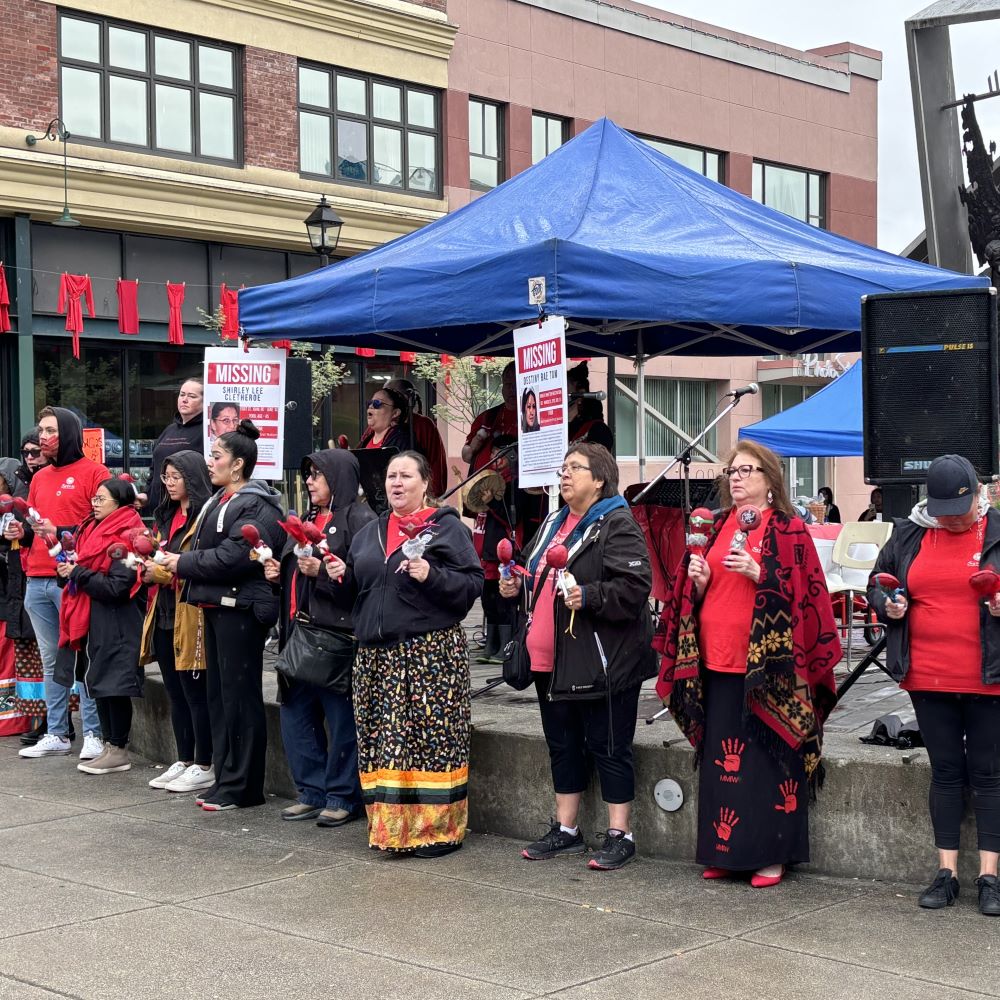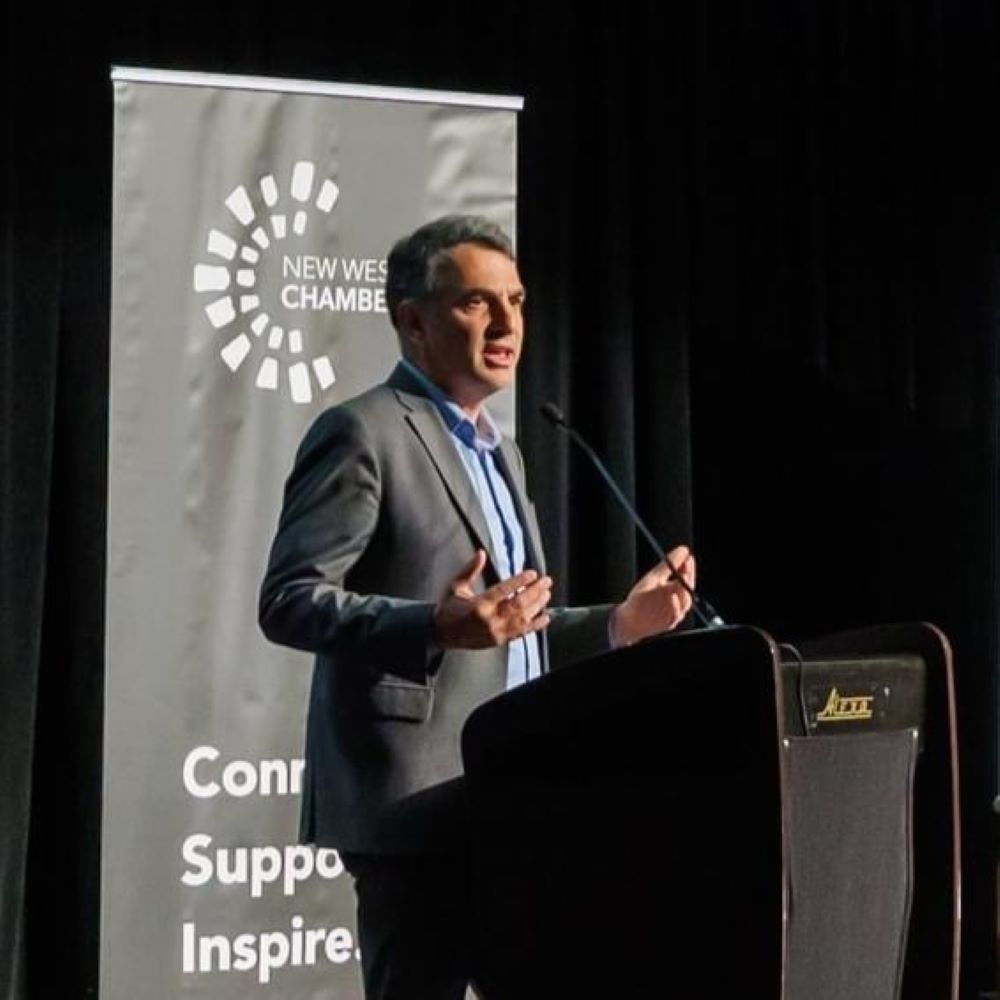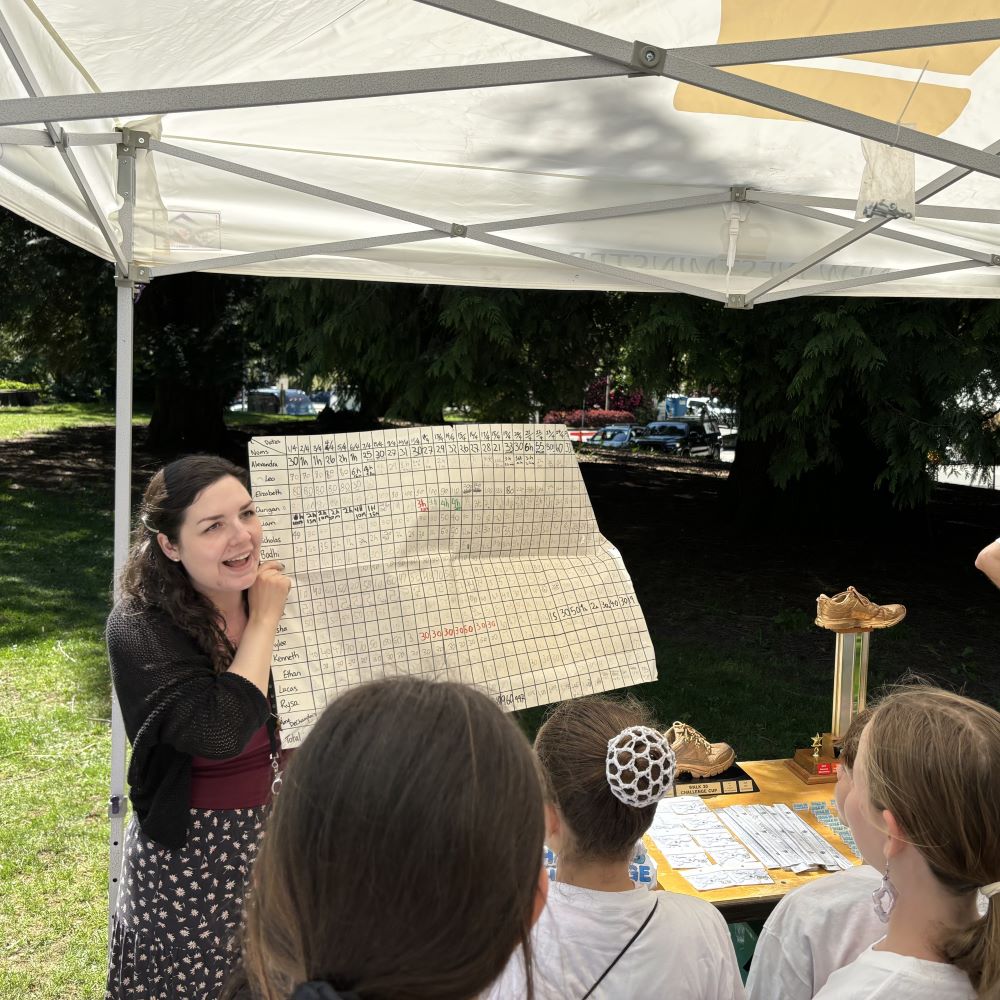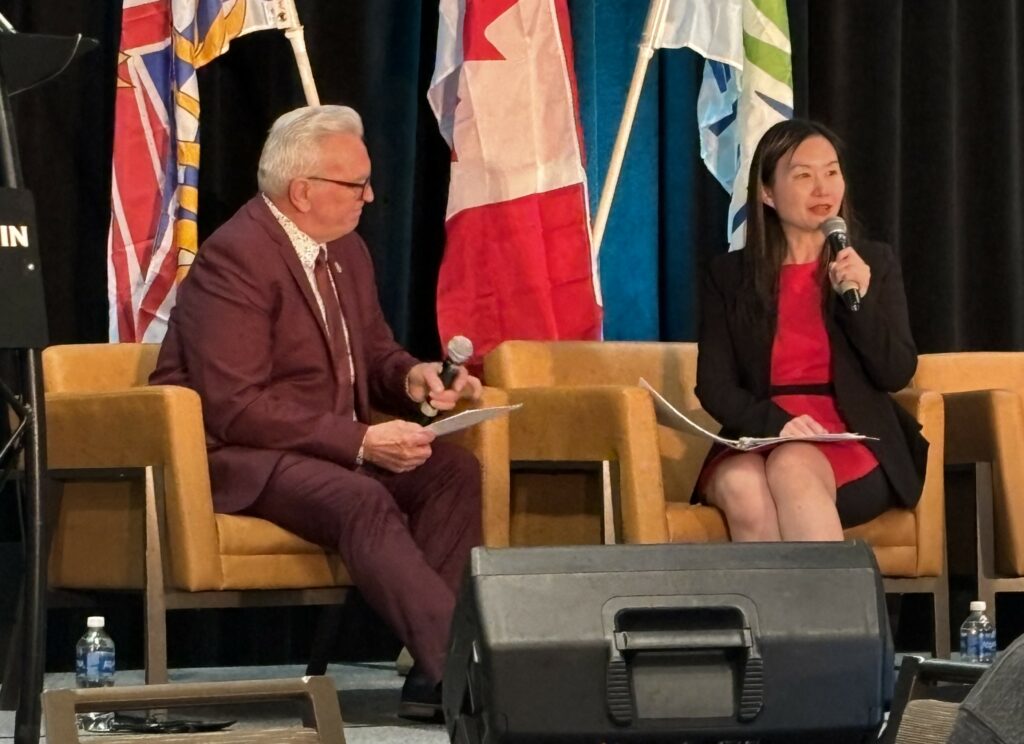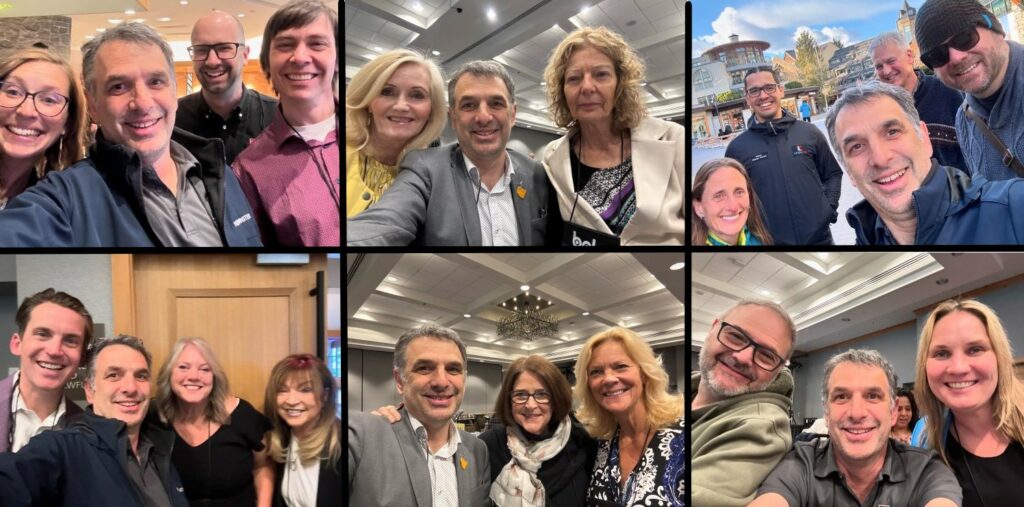As Mayvember moves in Juneuary, we spent Monday cozy and warm in Council Chambers with a regular agenda we moved through relatively quickly.
We started with moving the following items On Consent:
Construction Noise Bylaw Exemption Request: 330 East Columbia Street (Royal Columbian Hospital Redevelopment Project)
The RCH project has been operating at extended hours on Saturdays for some time, and it has only resulted in two noise complaints, both resolved. They are entering a phase where deliveries may need to occur as early as 7:00am on Saturdays to keep things moving, and council is granting them a construction noise exemption to permit this.
Construction Noise Bylaw Exemption Request: 612 Seventh Avenue – Marcon Construction
A large slab pour is required for the new mixed use tower being built Uptown. This work site had a few early noise complaints where the operator paid fines, but not complaints have been received in some time. Council is granting them a one-time expansion of work hours to facilitate a single large pour.
Development Cost Charge Bylaw – Inflationary Amendment Resubmission
DCCs are funds we collect from developers to help cover the cost of supplying infrastructure related to growth resulting from their developments. They are strictly regulated by the Province, and the money must pay for the specific infrastructure we identify as being needed to support that growth. As the cost of building that infrastructure goes up, we are able to do inflationary increases to our DCC rates. This Bylaw does that. We passed a similar one back in March, but the Provincial inspector of these things didn’t like the language we used around the date the change becomes effective, so staff have redrafted a version to the inspector’s liking, and we are moving it again.
Zoning Amendment Bylaw for 310 Blackley Street: Bylaw for First, Second, and Third Readings
The “Eastern Node” is a long-coming and slow –developing project in Queensborough. There is a master plan for townhouses, apartments, and commercial spaces in the area just west of Port Royal, and this single lot is part of “Phase 3”. The property is included n the land assembly, and is now coming to us for rezoning to match the masterplan.
Zoning Amendment Bylaw for 1005 Ewen Avenue: Bylaw for First, Second and Third Readings
This 23- unit townhouse project in Queensborough came to council for three readings back in 2019, but has been somewhat redesigned to better fit the site, so those three readings are being discarded, and a new bylaw to reflect the new alignment of the property is being brought to council for three readings.
The following items were Removed from Consent for discussion:
Queensborough Transportation Plan
Transportation staff have been engaging the Q’boro neighbourhood on the first transportation plan specific to that neighbourhood, recognizing it has unique transportation challenges. The first being that there are no plans to replace or expand the (provincial) Queensborough Bridge any time soon, and much like the adjacent Hamilton neighbourhood of Richmond (and downtown, for that matter), moving around within the community is challenged by twice-a-day through-commuters. The new Plan includes priorities to address some of those unique challenges of Q’Boro, and identifies some of the pains of growth in the community.
The depth of consultation here is something to behold: lots of info on the Be Heard New West project page, direct outreach to 25 identified interest groups, community pop-ups, social media, advertising in the record, on the digital billboards and at community bulletin boards, and 4,000 direct mailings. The resulting report is a really good read, and identifies strategies to address the walkability and transit access on Lulu Island.
One of the key issues in Queensborough is the intersection of Howes and Highway 91A, which is statistically one of the most accident-prone intersections, is a comfort and safety barrier to pedestrians walking to Queensborough Landing from south of the freeway, and has abhorrently bad bus stop conditions for such a key bus stop location. The City has little more than advocacy power on the intersection, because it belongs to the Ministry of Transportation, but we need to be taking that advocacy to a new level to get this gap fixed.
One other key topic in Queensborough is the general lack of sidewalks in many of the residential neighbourhoods. This is a long-standing grievance, and though the City has had preiovus plans and policies ot address this gap (mostly waiting for redevelopment of older neighbourhoods, or doing a special assessment to share costs with homeowners), it is complicated by Lulu Island’s special conditions – soft soils and open ditches. Very long story made much shorter it costs a LOT to cover ditches, and it is simply not possible in some areas, and traditional road-curb-sidewalk structures would need enclosed storm drainage, meaning $500/m sidewalks become $10,000/m infrastructure programs.
We asked staff to come back to Council with some updates on how we might prioritize some of this work. “It’s expensive” is a good argument against making a quick commitment to just do it, but I think folks in the ‘Boro have reasonable expectations that at least one side of a road has a sidewalk of we expect the neighbourhood to be walkable and safe for everyone.
This report also talks about a commitment the City is making to the QtoQ ferry, and though it’s cost is increasing (diesel and staff costs are not going down!), its ridership is rebounding a bit after COVID. Some folks rely on this service, but we are going to have to continue to keep an eye on costs. The provider contract is running out this year, and we will have to go to RFP for a new contract, and that process should give us some clarity on the future of the service.
Report Back on Provincial Electric Kick Scooter Pilot Program
Electric kickscooters and other forms of new electric mobility are, for the most part, illegal in BC. This is because the provincial Motor Vehicle Act has not been updated to recognize them, and the City can’t really overrule provincial rules. The Province is running a Pilot Program in some communities to legalize them, with the local government committing to amending its local street and traffic bylaws, and aligning requirements with the MVA. Essentially, the scooters have the same rights and responsibilities as cyclists, except the rider must be 16 years old, and cannot exceed 25km/h.
The recommendation that New West join the Pilot is one I nominally support, but some good questions were raised around how enforcement works now, and how it will change if we enter the Pilot Program that could not be answered in the meeting, so we referred the decision here to allow more consultaiton with NWPD.
Response to Council Motion: Ensuring that ground level retail spaces in new developments prioritize community-supporting businesses and organizations
This is a follow-up to the discussion Council had regarding (ugh) dentist offices at retail grade. Staff are reporting back that they are prioritizing this component of the Retail Strategy, and will come back with some policy options in later June. There was a bit more instruction provided to staff from Council to not just report back on the Retail strategy components, but our planning and development policies and bylaws.
Response to Council Motion Regarding “Supporting Child Care Development Across the City”
This is also a follow up to an earlier motion from Council asking about opportunities to expand the range of properties in the City where childcare will be permitted without rezoning. It is noted here that New Westminster is already a regional leader in childcare-supporting policy, and as a result has one of the highest levels of childcare availability per capita in the Metro region (34.4 per 100 children, compared to a regional average of 25). The last time we expanded childcare zoning was 2011, and a re-look seems timely, especially as we are the fastest growing Metro Vancouver City in the “having kids” demographic of 25-44 years old.
Staff are going to review permitted childcare spaces as they implement the new Provincial housing regulations, as the pretty substantial zoning rewrite resulting from that regulation is a great opportunity to get it right at the same time. There are, notably, some (provincial) building code barriers to larger childcare facilities in typical residential buildings, but we want to make sure there aren’t municipal barriers if people want to make that investment.
Rezoning: 88 Tenth Street (Columbia Square) – Introductory Report
The owner of Columbia Square wants to redevelop the site to provide a significant number or residential homes, while maintaining the existing volume of retail and commercial spaces. We had a preliminary look at this back in April, and now staff want to work with the applicant to go to public consultation and move a more detailed design forward, so that rezoning can be considered by Council within this year.
This is a slightly different process, in that rezoning (which defines landuse, density, heights, and amenities) would be read three times, and if approved, some of the more detailed Development Planning part would come after. This two-phase process is more common in some other cities, but not as common here.
The challenge on this site is that the retail preservation and redevelopment and cost of building on the site do not provide economic viability if a significant below-market housing component is included. It being within the Province’s Transit Oriented Development Area defines in Bill 47 also complicates our ability to require affordable housing on the Site. We can receive Density Bonusing, which is money the developer pays the city to exceed the maximum density granted as right on the site, and the City can invest that DB into amenities.
The request from staff here is to work with the applicant to proceed with public consultation and the work needed to frame a rezoning Bylaw, which council will in turn be asked to consider some time later in the year.
Train Whistle Cessation Resolution at the Furness Street Rail Crossing
Whistle Cessation is complicated process. Once the engineering is done to make the crossing safe enough for the Railway and Technical Safety BC to agree whistles are not necessary, Council must pass a resolution deeming that whistles are not sounded. After significant engineering work (funded by an adjacent developer), and the City’s commitment to maintaining the engineering controls, we are ready to pass this resolution for a high-profile crossing in Port Royal. The train operator can still sound a whistle if they see a track intrusion or other hazard, but won’t sound it every time they cross, which should slightly improve the quality of sleep for a few folks in Port Royal.
We then read some bylaws including the one Bylaw for Adoption:
Zoning Amendment Bylaw (114-118 Sprice Street) No. 8387, 2023
This zoning amendment to permit 10 new houses on compact lots in Queensborough was adopted by Council.
We then addressed a single Motion from Council:
Encouraging the BC Government to Terminate the Failed Decriminalization Experiment
Submitted by Councillor Fontaine
BE IT RESOLVED THAT the Mayor write a letter to the Premier and Minister of Mental Health and Addictions requesting they immediately halt the failed decriminalization experiment pilot project in BC.
This motion was, for anyone paying attention to the news, redundant when it landed, but the mover decided not to withdraw it, but to instead take some Council time to have their say on the topic. Because of this, we were treated to several well-worn BC United fearmongering speaking points, and an argument that instead of harm reduction, we need to equally fund all pillars in a “four-pillar approach”, which demonstrates a stunning ignorance about the very “Four Pillars” the mover is advocating towards.
This is not just because harm reduction (every aspect of which the mover steadfastly argued against for five minutes) is not only one of the four pillars – it is consistently the least funded of the four pillars. Don’t take my word for this, the Government of Canada tracks these things. So how do we unpack what the mover is actually arguing for? Clearly he is not asking that we increase by 7 times the funding we put into Harm Reduction (safe consumption, safe supply, etc.) to bring it up to the amount we spend on enforcement, so I have to read it as a radical Defund-the-Police motion advocating to cut by 80% our drug enforcement budget in order to bring it down to where harm reduction spending is. I’ll have to remember to ask the mover about that.
I have more to say about this entire debacle of a motion, and will perhaps follow up in another post if I can stomach it, because not only were people stigmatized by the comments in council, there was a woefully unfirmed argument in favour of stigmatization. Ugh. I’ll just wrap this report by saying Council wisely voted against supporting this redundant and ill-considered motion.
